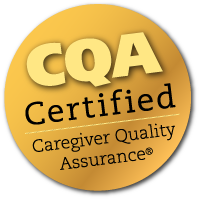By Stephen Tweed
What will be the impact of $15 per hour caregivers in home care?
Let me be clear. I am all in favor of helping our home care caregivers earn fair pay and benefits. Having an adult son who has benefitted from the services of private duty home care for the past 25 years, I know the positive impact that caregivers make in a family, and I know how hard they work.
I am not in favor, however, of artificially increasing caregiver wages by elected officials who pass laws requiring higher pay without understanding the economics and the unintended consequences. If you have been following our articles, you know that we have been paying attention to the laws to increase the minimum wage in Seattle, San Francisco, and Los Angeles.
Here’s an example of the backlash to the $15 minimum wage in Seattle from a home care company in that city. This is an excerpt from an article published by Western Journalism.
“Seattle became the first city in the nation to implement the $15 per hour minimum wage this past spring. Fox News reports that one unintended effect is that workers who are earning the higher wage are asking for fewer hours, so they can remain eligible for low income government benefits like childcare and tax credits.
Full Life Care, a home nursing nonprofit, told KIRO-TV in Seattle that several workers want to work less.
Local radio talk show host Jason Rantz on KIRO-FM noted the irony: “If [employees] cut down their hours to stay on those subsidies because the $15 per hour minimum wage didn’t actually help get them out of poverty, all you’ve done is put a burden on the business and given false hope to a lot of people.”
“Despite a booming economy throughout western Washington, the state’s welfare caseload has dropped very little since the higher wage phase began in Seattle in April. In March 130,851 people were enrolled in the Basic Food program. In April, the caseload dropped to 130,376”.
The article also includes data from the Heritage Foundation, which notes the minimum wage is usually for new workers, with a low percentage of Americans receiving it. The organization also points out some other interesting statistics:
- Over half of minimum-wage earners are between the ages of 16 and 24.
- Two-thirds of minimum-wage workers earn raises within a year—without the government’s help.
- Only 2.9 percent of wage earners earn the federal minimum wage.
- Most minimum-wage earners are teenagers or young adults, not heads of families.
- Two-thirds work part time (defined as less than 35 hours a week).
- Two-thirds of minimum-wage workers live in families with incomes above 150 percent of the poverty line.
- Just 4 percent of minimum-wage workers are single parents working full time, compared to 5.6 percent of all U.S. workers.
- Studies find raising the minimum wage does not reduce poverty.
Not only is this law affecting home care. There seems to be a big impact on the local restaurant industry in Seattle.
“Some restaurants have tacked on a 15 percent surcharge to cover the higher wages. And some managers are no longer encouraging customers to tip, leading to a redistribution of income. Workers in the back of the kitchen, such as dishwashers and cooks, are getting paid more, but servers who rely on tips are seeing a pay cut,” Fox News reported.
Earlier this year, as the implementation of the minimum wage law loomed, Seattle Magazine noted that something appeared to be afoot affecting the restaurant industry in the city, asking: “Why Are So Many Seattle Restaurants Closing Lately? “Seattle foodies [are] downcast,” the magazine reported, “as the blows kept coming: Queen Anne’s Grub closed February 15. Pioneer Square’s Little Uncle shut down February 25. Shanik’s Meeru Dhalwala announced that it will close March 21. Renée Erickson’s Boat Street Café will shutter May 30 after 17 years with her at the helm…What the #*%&$* is going on? A variety of things, probably—and a good chance there is more change to come.”
What About Overtime?
Another policy decision that is having a negative impact on home care workers, companies, and clients is the Department of Labor’s decision to change the rules with regard to overtime. Their contention is that low paid workers need to earn more income so they should receive overtime. We have not yet heard the ruling from the US Court of Appeals in the District of Columbia which heard oral arguments on the appeal of the earlier federal court ruling that supported the Federal Companionship Exemption. That ruling should be coming soon.
The most recent iteration of this rule is to raise the annual salary limits for office staff members to be considered “salaried – exempt”, and exempt from overtime. A recent article in the Washington Post says, “By significantly increasing the salary threshold below which salaried workers get overtime pay, President Obama just took a big step toward updating a critical labor standard with the potential to boost the paychecks of millions of middle-wage workers, many of whom should be getting overtime but are not.”
The current threshold is only about $23,700. The president’s proposal takes it up to $50,400, about $970 per week.
What this means is that many supervisors and managers in home care companies will fall into the category where they are entitled to overtime. How will this affect office staff members who take “on-call” evenings and weekends? What will be the impact if you need to pay staffers overtime to take evening and weekend call?
The result will be increased costs to the company and increased prices to the clients, but few workers will actually be paid overtime because the revenue is not there to cover the added costs. Workers will be limited to less than 40 hours per week by their companies so they won’t benefit from this new rule. Companies will be hurt by the need to hire additional workers to take evening and weekend call, and that added cost will be passed on the clients in the form of higher rates.
Where the unintended consequences really come into play is for the companies that serve Medicaid Waiver beneficiaries. The states do not have the resources to increase the amount they pay home care companies. If the companies can’t increase their rates, they may decide to drop Medicaid home care services altogether. In that case, the persons who are hurt the most are the Medicaid beneficiaries who can’t get care because no companies will provide the services at the rates being paid by the states. That leads to another article for another day – the growth of Managed Medicaid and the impact on beneficiaries.
These issues also lead to more articles on how to recruit, select, train, and retain high quality caregivers. We have some new services coming your way from Caregiver Quality Assurance, so stay tuned.





